Ripples in Maldives-India relations: The China factor
Mohamed Muizzu, the newly elected president of the Maldives, seems to be pivoting away from India and moving closer to other sources of support, such as the Arab countries and China. With a wary eye on China's ambitions in the Indian Ocean, India is expected to push back strongly.
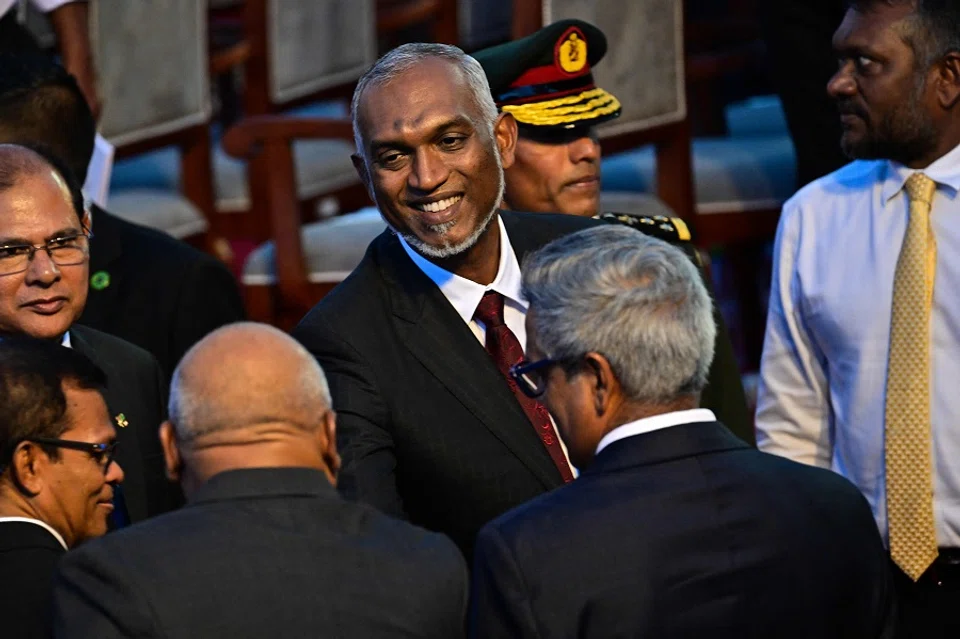
"We may be small, but that doesn't give you the license to bully us."
This was the jibe taken at India by Mohamed Muizzu, the newly elected president of the Maldives, who has brought Male's ties with New Delhi down to its lowest point. In a geopolitical landscape where the Maldives has traditionally acknowledged India as a longstanding ally and a development partner, the recent statement reflects strong ripples in bilateral ties.
In the past, other smaller countries in India's periphery, including Nepal and Sri Lanka, have used similar language towards India. Still, Delhi seems to have reached an understanding with them over the years due to deep-rooted shared sociocultural ties. In the Maldives, however, anti-India sentiments hold the attention of the domestic constituency.
This pivot is highlighted by Muizzu's efforts to form strategic alliances with new actors, particularly Islamic countries and China.
Maldives wants 'India Out'
President Muizzu's election campaign was centred on the "India Out" narrative, where he framed the presence of Indian troops on Maldivian soil as a threat to the sovereignty of the Maldives. India hoped that such rhetoric would calm down once the elections were over. Instead, Muizzu has fired another salvo at India by setting a deadline of 15 March for India to withdraw its troops who have been assisting with the operations of two Dornier aircraft that Delhi had gifted to the island nation.
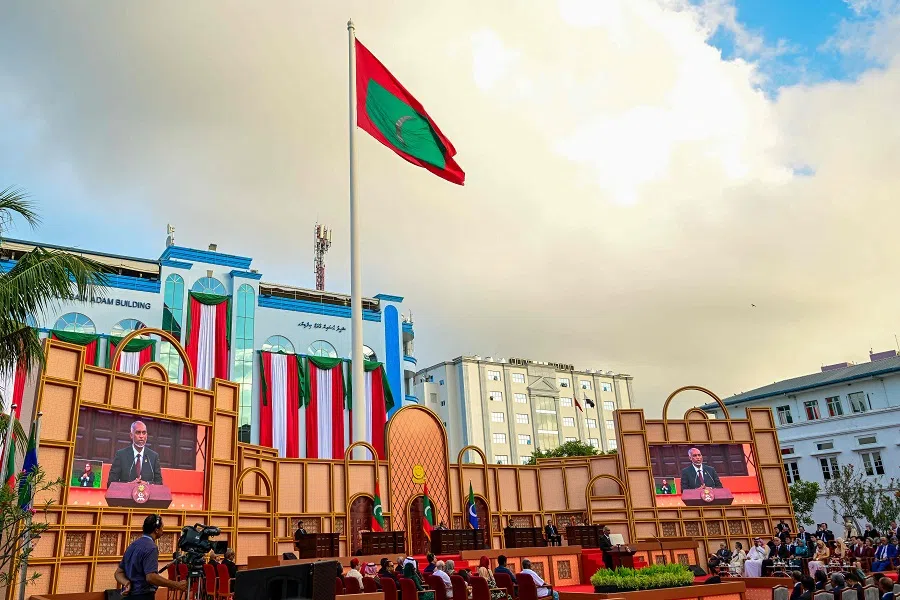
President Muizzu's strong anti-India posture indicates a substantial shift in the Maldives' geopolitical orientation. This pivot is highlighted by Muizzu's efforts to form strategic alliances with new actors, particularly Islamic countries and China. This transition may offer opportunities for increased cooperation, trade and mutual assistance, giving the Maldives more diplomatic options.
Raising profile in the Islamic world
President Muizzu broke away from the usual practice of the country's new head of state visiting India on the first official visit. Instead, he went to Turkey. On his way back, Muizzu also visited the United Arab Emirates (UAE).
Making two distant trips soon after assuming office was certainly unexpected; it is clear that Muizzu wants to raise the cultural and religious profile of the Maldives as an Islamic country in the Islamic world.
This is undoubtedly a win-win situation for the Maldives, Turkey and the UAE.
If the Maldives wishes to reorient its foreign policy from India to other centres of power, it needs equally strong economic allies who can support Male in the long run. The Arab world has money, the Maldives has the intent, and the common cultural profile strongly connects the two.
The Maldives' longstanding solidarity with the people of Palestine has already received accolades in the Islamic world. Therefore, President Muizzu is using the Islamic card to pave his way into the world of reliable supporters.
With the rise of a strong fundamentalist Islamic constituency in the Maldives in the last decade, almost all parties in the Maldives have attempted to project their allegiance to the Islamic values as prescribed in the Sharia, i.e., Islamic laws.
The Maldives has also seen instances of Islamic terrorism and strong support for the Islamic State (ISIS). A 2022 report by the US State Department on International Religious Freedom in the Maldives reveals deep insights into the rise of Islamic fundamentalism in the Maldives.
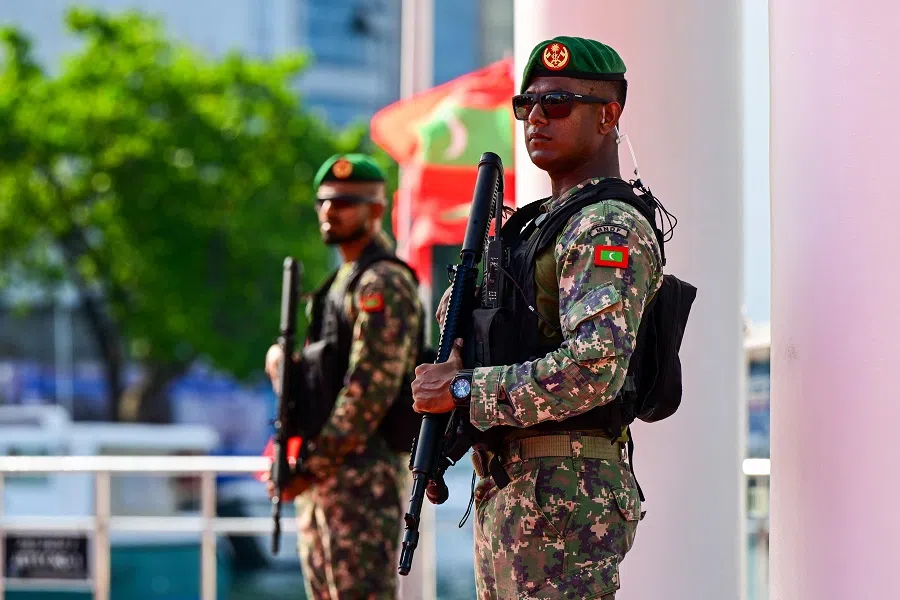
At the same time, the Islamic identity connection matches the rising quest of the middle powers to strengthen their strategic footprint in the Indian Ocean, a key global trade gate. Their presence in the Indian Ocean helps them enhance their strategic infrastructure amidst rising tensions in the Indo-Pacific between China and the Quad countries - the US, India, Japan, and Australia. This is undoubtedly a win-win situation for the Maldives, Turkey and the UAE.
... Muizzu, unlike his predecessors, has done away with subtlety in making choices on the neighbourhood front by engaging with China more openly and aggressively.
China makes a comeback
With the "India Out" campaign at the heart of Muizzu's electoral victory, President Muizzu, unlike his predecessors, has done away with subtlety in making choices on the neighbourhood front by engaging with China more openly and aggressively. Though its middle-power choices have geographical limits, the Maldives knows the importance of solid regional allies, especially when it moves away from its next-shore neighbour, India.
On the second leg of his foreign trips, President Muizzu visited China on 8 to 12 January, where he reached a common understanding with Beijing as he signed 20 key agreements, including on tourism cooperation, advancing the blue economy, and boosting economic and investment cooperation through the Belt and Road Initiative (BRI).
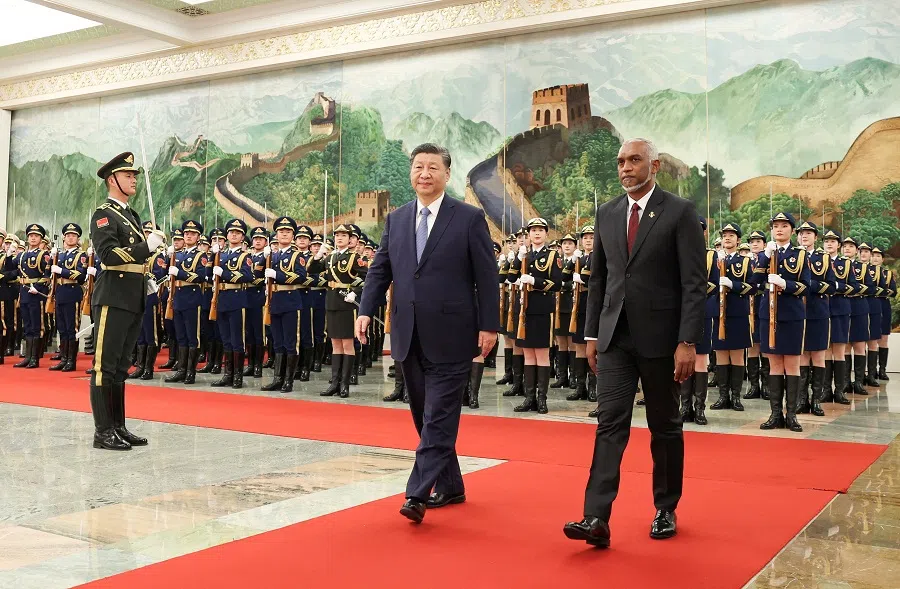
The two countries elevated diplomatic ties to a Comprehensive Strategic Partnership, bringing in more security and defence-related elements, including the implementation of the Global Security Initiative (GSI). This development has not only set off alarm bells in India but also the global players, including the US, Japan, and Australia, who are just as concerned about China's intentions and actions, when they are purely security oriented.
Indian Ocean is China's big bet
The signing of an Action Plan for Building a China-Maldives Comprehensive Strategic Cooperative Partnership in the next 25 years holds greater significance on the bilateral and regional fronts. It puts the Maldives under a greater Chinese security framework, especially when Beijing is aggressively preparing to strengthen its naval presence with more spy ships and submarines in the Indian Ocean.
With a positive nod to a China-centric security and foreign policy, the Maldives decided to skip the Colombo Security Conclave (CSC) - a regional security forum focusing on the security interests in the Indian Ocean, held at Mauritius in December 2023. CSC was formed in 2011 and currently has India, Sri Lanka, the Maldives and Mauritius as four members. Because it is an India-dominated forum, the Maldives were expected to skip it to avoid Beijing's attention.
However, Maldivian Vice-President Hussain Mohamed Latheef was in attendance at the China-Indian Ocean Region Forum on Development Cooperation (CIOFRDC), co-hosted by the China International Development Cooperation Agency (CIDCA) in December 2023. CIORFDC has an agenda similar to the India-led CSC, focusing on the blue economy, maritime disaster prevention, and maritime ecology protection. By skipping CSC and joining CIOFRDC, Muizzu administration seems to continue the momentum in his "India Out" campaign.
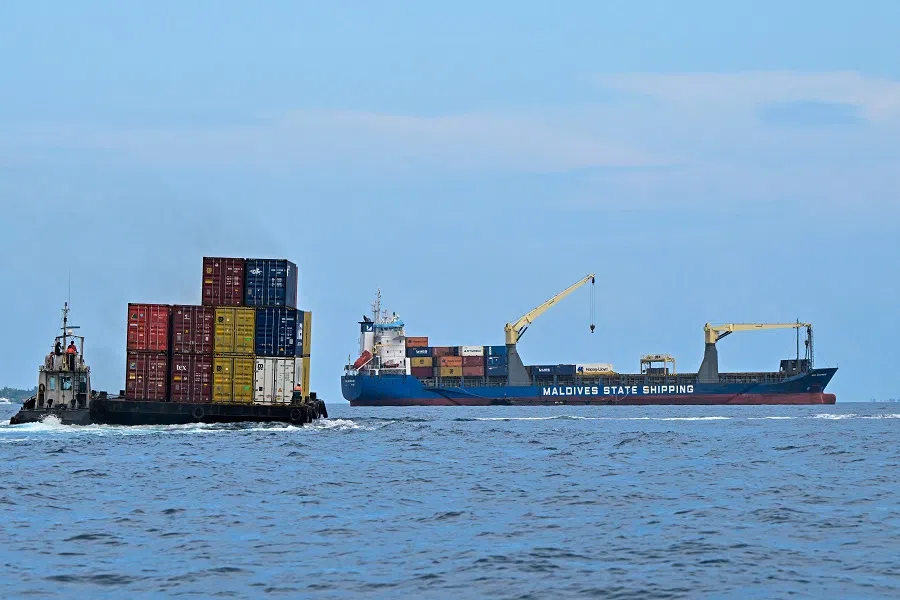
There remains little doubt that China's quest in the Indian Ocean is not just to counter the influence of the global powers but also to ensure its economic interests, vigilance on the global naval movement in the Indian Ocean, and to ensure a substantial military presence. This is largely visible from the Chinese acquisition of Sri Lanka's Hambantota port on a 99-year lease, enabling China to strengthen its strategic base in the Indian Ocean with a dual-purpose capacity.
A CSIS report entitled "Surveying the Seas" recently revealed that China is attempting to transform its capabilities in the Indian Ocean to understand "the maritime operating environment by studying water conditions, currents, and the sea floor". These surveys are crucial for the movement of commercial ships and security submarines.
Observers believe Chinese research vessels are dual-purpose "spy ships" equipped with satellite tracking systems, rockets and inter-continental ballistic missiles - aimed to keep an eye on naval movement in the Indian Ocean.
... the Maldives, a new welcoming spot for China, has allowed the Chinese research vessel Xiang Yang Hong 3 to dock on its shores, ignoring Indian apprehensions.
India expected to push back
Last year, India objected to the docking of the so-called Shi Yan 6 - a ship categorised as a Chinese research vessel, on the shores of Sri Lanka. However, after ample Indian pressure, Sri Lanka has assured India not to allow Chinese research ships to dock in Sri Lanka for a year.
But the Maldives, a new welcoming spot for China, has allowed the Chinese research vessel Xiang Yang Hong 3 to dock on its shores, ignoring Indian apprehensions. Muizzu's intended actions towards India are unlikely to escape a strong reaction from Delhi.
President Muizzu may have his "India Out" campaign to credit for his electoral win. But his recent actions in "making a stark pivot towards an anti-India stance" have met a strong response from the opposition, who have warned Muizzu that "alienating any development partner, and especially the country's most long-standing ally [India] will be detrimental to the long-term, development of the country".
The ongoing #BoycottMaldives campaign in India has already witnessed a significant fall in Indian tourists coming to the Maldives. With tourism making a major contribution to the Maldivian GDP, the country cannot avoid thinking about the long-term implications of antagonising Delhi.





